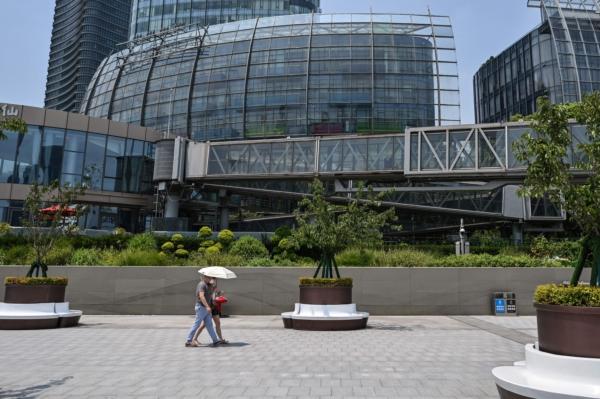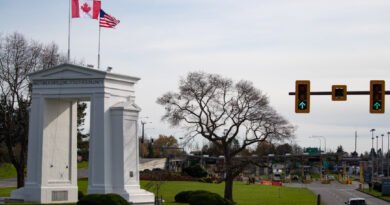Shanghai Proposes ‘Old Homes for New’ Housing Policy to Revitalize Property Market
China economist Davy Jun Huang believes that despite its superficial attractiveness, the ‘old for new’ housing policy is unlikely to rescue China’s property market.
News Analysis
Shanghai, once known for its soaring property prices, has implemented an “old for new” housing policy, joining more than 30 other Chinese cities that have taken similar actions in a bid to revive the struggling property market. However, an economist argues that the policy will not be effective due to decreasing purchasing power and high real estate taxes in China.
Under this policy, buyers who want to purchase new homes first indicate their interest with real estate developers, then have their existing homes listed for sale by real estate agencies. Once they sell their “old” homes, they can proceed with the purchase of the new ones as agreed.
More than 20 real estate development companies and nearly ten real estate agencies have signed up as initial participants in the program. Over 30 development projects are spread across districts such as Jiading, Songjiang, Qingpu, Fengxian, and the Lingang New Area in the Shanghai Free Trade Zone.
‘Old for New’ in Over 30 Chinese Cities
The “old for new” policy has been adopted by more than 30 city governments since 2023, according to research organization China Index Academy, which monitors China’s property management industry.
“‘Old for new’ is like selling your old house to the government for an assessed price,” explained Chen Wei (pseudonym), a real estate intermediary salesperson in Zhengzhou City. “However, the money is not given directly to you. You need to buy a new house within the main urban area with that money. If your old house is valued at 1 million yuan, the price of the new house you purchase cannot be less than 1 million, as the government does not give change.”
Mr. Chen highlighted that the policy does not address the challenges faced by individuals who are unable to sell their homes; rather, it focuses on reviving the sluggish property market.
“The government is not providing a safety net for the people, nor is it taking on all unsold houses. The government is not a charity organization, and local finances do not have sufficient funds for these initiatives,” he noted.
Mr. Chen detailed two main operational models adopted by participating Chinese cities for their “old for new” housing policies.
One model resembles the approach in Shenzhen, where real estate companies and intermediary agencies work together to boost the sale of pre-owned homes. Buyers subscribe to new housing units from developers, engage real estate agencies to sell their pre-owned homes, and proceed with the purchase of the new homes if their old homes are sold within a specific period; otherwise, the subscription funds for the new homes are refunded.
The second model involves developers and state-owned platforms acquiring pre-owned homes. Buyers looking to sell use the proceeds from their pre-owned homes to buy new units from approved projects. In Zhengzhou City, for example, acquisition entities formulate acquisition plans to increase the supply of guaranteed rental housing based on demand for such housing in the city’s eight districts.
Mr. Chen stated that Zhengzhou initiated a pilot program for the policy at the end of April, outlining four requirements for eligible homeowners: their pre-owned homes should not exceed 15 years in age, be no larger than 120 square meters, have property certificates, and be in specific well-developed areas of the city.
He added that the acquired houses are to be converted into affordable housing by the housing management department, making excessively large or small houses unsuitable.

Buyers can apply and register on the Shanghai government platform only if they meet all four requirements. The platform will then arrange assessments for the houses, combining evaluation reports to determine their valuation. If buyers agree with the valuation, they can proceed; otherwise, the “old for new” process ends there.
China economist Davy Jun Huang, a columnist with China’s state media CNTV currently based in the United States, opined that the “old for new” housing policy, despite its surface appeal, will have limited impact on China’s property market recovery.
He highlighted that the market’s core challenge lies in dwindling purchasing power, exacerbated by high real estate taxes diverted to support government expenditures, thereby diminishing the policy’s effectiveness.
China’s Home Listings Rise as Prices Fall
Liang Botao, general manager of the China Index Academy’s Henan branch, noted that challenges persist in the real estate market, with a reluctance among the public to buy homes.
As the listings of pre-owned homes increase in many areas, their sales volumes have only seen reductions in prices in the market.
Xin Ning contributed to this report.



